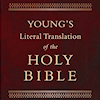So, I, "bear false witness against the translators of the NKJV"?
"In most places where the NKJV disagrees with the King James Bible,
it agrees with the translations of modern Alexandrian p*********s,
whether Prostestant like the NIV, NAS, RSV, ASV, etc.,
or Roman Catholic like the New American Bible.
Your broad-sweeping, generalized assertion or accusation is not true. Perhaps you have believed and repeated the factually incorrect accusations of KJV-only authors.
In my comparisons of the 1560 Geneva Bible, the 1611 KJV, and the 1982 NKJV, I found many pages of places where the NKJV varies or differs with the KJV that it agrees with the 1560 Geneva Bible or another pre-1611 English Bible.
As examples to support his broad-sweeping allegations against the NKJV, KJV-only author William Grady had cited from the Song of Solomon what he claimed were "pronounced examples of NKJV affinity with the RSV and NASV" (
Final Authority, pp. 305-310). Grady's assumption or accusation that the NKJV supposedly copied the RSV or has a direct relationship or affinity to the RSV instead of translating accurately the original languages will be demonstrated to be incorrect by sound evidence.
The 1560 Geneva Bible agreed with the NKJV translation of the Hebrew word
shalom as "peace" at Song of Solomon 8:10. Clearly KJV-only advocates fail to apply the same measures to the Geneva Bible that they attempt to apply to the NKJV. The KJV translators themselves usually translated this Hebrew word as "peace" and placed in the margin of the 1611 at this verse the following note: "Heb. peace." Would Grady in effect condemn the KJV translators for saying that this Hebrew word means "peace" in their marginal note? Estus Pirkle noted that the 1534 German Bible, 1526 French Bible, and 1569 Spanish Bible have "peace" at Song of Solomon 8:10 (
The 1611 KJB, p. 533).
It is interesting that Grady did not condemn the NKJV for having "turtledove" at Song of Solomon 2:12 in agreement with the Hebrew and even the RSV instead of the KJV's "turtle." Perhaps, Grady knew that this was the same Hebrew word translated "turtledove" other places in the KJV. Coverdale's Bible, Matthew's Bible, and Great Bible have "turtledove" in this verse. At Song of Solomon 5:12, the Geneva Bible has the same translation as the NKJV: "his eyes are like doves." The KJV added in italics an extra "the eyes." D. A. Waite had asserted: "By implicit addition to that text, they say that these words can be implied by the context and you can go ahead and add them in your translation-which to me is not a translation but a perversion of Scripture" (
Defending the KJB, p. 121). He also alleged: “If you ADD to the Word of God what you think is implicit in the words, that is disobedience” (p. 124). While Waite was actually stating his claims about a different verse in a modern translation instead of about this verse in the KJV, his statements would seem to apply here and to some other verses in the KJV if his statements are to be regarded as based on consistent, valid, sound, and just measures.
The 1560 Geneva Bible and 1853 Leeser's Old Testament also agreed with the NKJV reading at Song of Solomon 6:12: "chariots of my noble people" while the 1535 Coverdale's Bible and 1537 Matthew's Bible have "the chariots of the prince of my people."
The Companion Bible noted that the KJV followed the Septuagint, Arabic, Ethiopic, and Latin Vulgate by treating this phrase as a proper name "Ammi-nadib" while the Hebrew is "the chariots of my people, the noble," or "of my noble people" (p. 927). The
Dutch Annotations has this note: “Some render it,
upon the chariots of Amminadib, making of two words one.” The
Rice Reference Bible has this note for this verse: "Or, set me on the chariots of my willing people" (p. 719). The Geneva Bible has "sons of my mother" at 1:6. Would Grady suggest that the 1560 Geneva Bible copied the 1952 RSV at this verse?
Another NKJV rendering that William Grady uses as an example is "cakes of raisins" at 2:5 instead of the KJV's "flagons." Waite's
Defined KJB gave the following note for "flagons:" "
Heb raisin-cakes" (p. 913). Green's
Concise Lexicon defined the Hebrew word used in this verse as "raisin-cake" (p. 26). The 1842 revision of the KJV and the 1885 translation by John Nelson Darby have "raisin-cakes" at 2:5. The 1535 Coverdale's and 1537 Matthew's have "grapes" at 2:5.
The Companion Bible has this note for 2:5: "flagons=grape-cakes" (p. 923).
Baker Encyclopedia of Bible Plants noted that "compressed cakes of raisins are very sustaining (Song of Solomon 2:5)" (p. 100). At his entry "flagon," Laurence Vance acknowledged: "Since the Bible mentions 'dried grapes,' it is possible that it is grapes that is being referred to" (
Archaic Words, p. 144). Jack Moorman identified "flagons" at this verse as "raisin cakes" (
Conies, p. 30). At its entry "flagon," David Cloud's
Way of Life Encyclopedia has two definitions: "a cake of grapes" and "a container for wine" (p. 150). Concerning Song of Solomon 2:5, Ronald Bridges and Luther Weigle noted that "the word represented by 'flagon' is
ashishah, which means a pressed 'cake of raisins'" (
KJB Word Book, p. 135).
Another of Grady's examples of where the KJV supposedly has a RSV reading is "sixty" at Song of Solomon 6:8. Did the 1833 Webster's Bible and 1853 Leeser's Old Testament supposedly copy the RSV with their rendering "sixty" instead of "threescore" at Song of Solomon 6:8? Waite's
Defined KJB defined "threescore" as "sixty." Was Grady implying that "sixty" in the NKJV is an inaccurate or unclear rendering of God's preserved Word in the Hebrew at this verse?
An additional example cited by Grady was "who veils herself" in the NKJV at 1:7. The 1862 Young's Literal Translation and the 1885 translation by John Nelson Darby has the rendering "as one veiled" (1:7). At this same verse, Leeser's Old Testament has "like a veiled mourner" while the 1917 translation by Jews has "that veileth herself." Evidently, Grady is unaware of the rendering in the margin of the 1611 KJV at this verse: ("'Or, as one that is veiled"). Haak’s 1657 translation from the authorized Dutch Bible [“that covereth herself”] at this verse also shows Grady‘s claim to be incorrect. In the seventh verse of chapter six, Leeser's has "behind thy veil" while Grady suggested that the rendering "behind your veil" came from the RSV.














